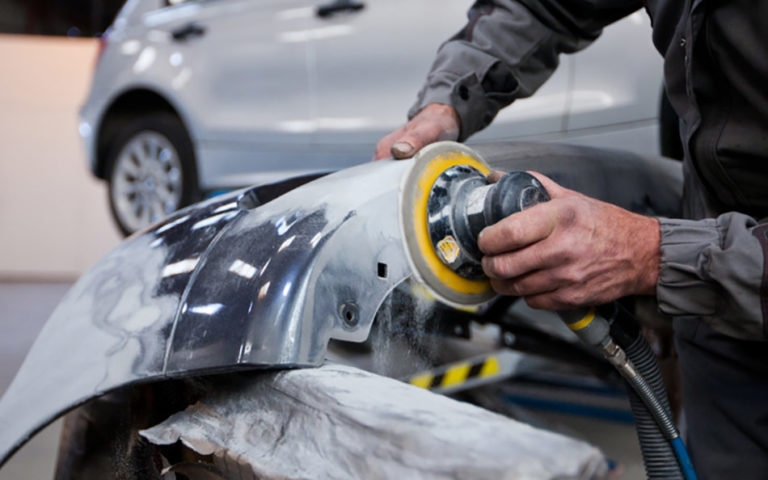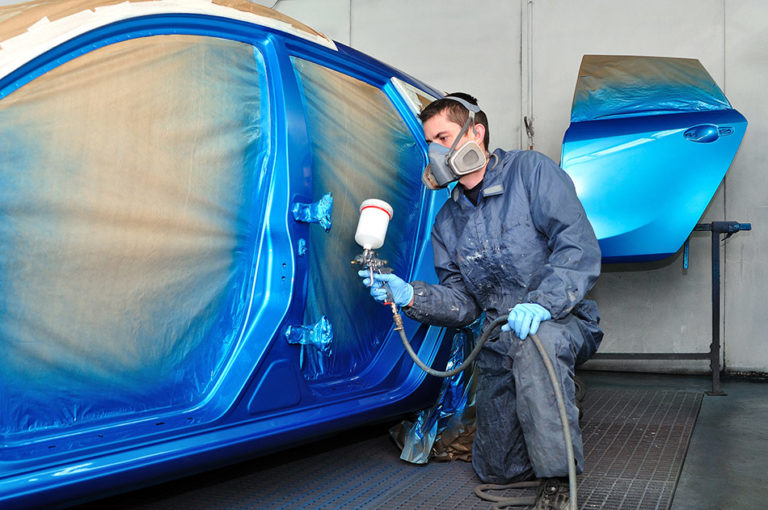
Auto Bodywork
The vocational training program prepares students to practice the trade of autobody repairer. Autobody repairers work in the automotive sector as well as the heavy vehicle sector, for example, in body repair shops, dealerships and repairs shops. These individuals inspect the damage on vehicles, replace glass, repair or replace panels (doors, hoods), repair plastic, repair defects in bodywork, straighten and repair frames, apply primers on vehicles, do paint jobs and prepare cars for delivery. These individuals also replace safety and driving assistance components such as airbags and sensors. To accomplish their work, they use diagnostic tools, measuring instruments, hand tools, electrical, pneumatic and hydraulic equipment, benches, lifting equipment as well as equipment for cutting, heating, welding, adhesives and spraying (primer and paint).
![]() Duration :
1 650
Hours
Duration :
1 650
Hours
academic
prerequisites
* The validation of your eligibility will be confirmed by our admissions department once your application has been completed.
JOB
PROSPECTS
Visit Emploi-Québec to learn more about these opportunities.
EDUCATIONAL INSTITUTIONS PROVIDING TRAINING
Portages-de-l'Outaouais - Immeuble Asticou
Gatineau, Outaouais
Details [+]
Centre de formation professionnelle de Verdun
Montréal, Montréal
Details [+]
Centre de formation professionnelle du Grand-Fjord - Pavillon Équip. Motorisé
Saguenay, Saguenay-Lac-Saint-Jean
Details [+]
Centre intégré de mécanique industrielle de la Chaudière (CIMIC)
Saint-Georges, Chaudière-Appalaches
Details [+]
Centre d'études professionnelles Saint-Jérôme
Saint-Jérôme, Laurentides
Details [+]
Centre de formation professionnelle Val-d'Or
Val-d'Or, Abitibi-Témiscamingue
Details [+]
Legend Welcoming services
Integrating into the community
— Practical tour of the city and help with initial purchases
— Contact with local aid organizations
Reception on arrival
— Reception at airport, bus terminal or train station
Integrating into the school system
— School tour and twinning with another student
— Monthly follow-up with the student
Integrating the family
— Referral to employment agencies for your spouse
— Help with child daycare or school registration
— Information on family social activities
General information and administrative follow-up
— Direct contact with a resource person
— Registration, information and provision of mandatory health insurance card
— Explanation of the Centre’s teaching techniques and operations
Accommodation
— Reserving temporary accommodation prior to arrival
— Help with finding permanent accommodation
Note: Services may vary slightly from one training centre to another.
TRAINING OBJECTIVES
Similar training
TRAINING CONTENT



Socialise with us !